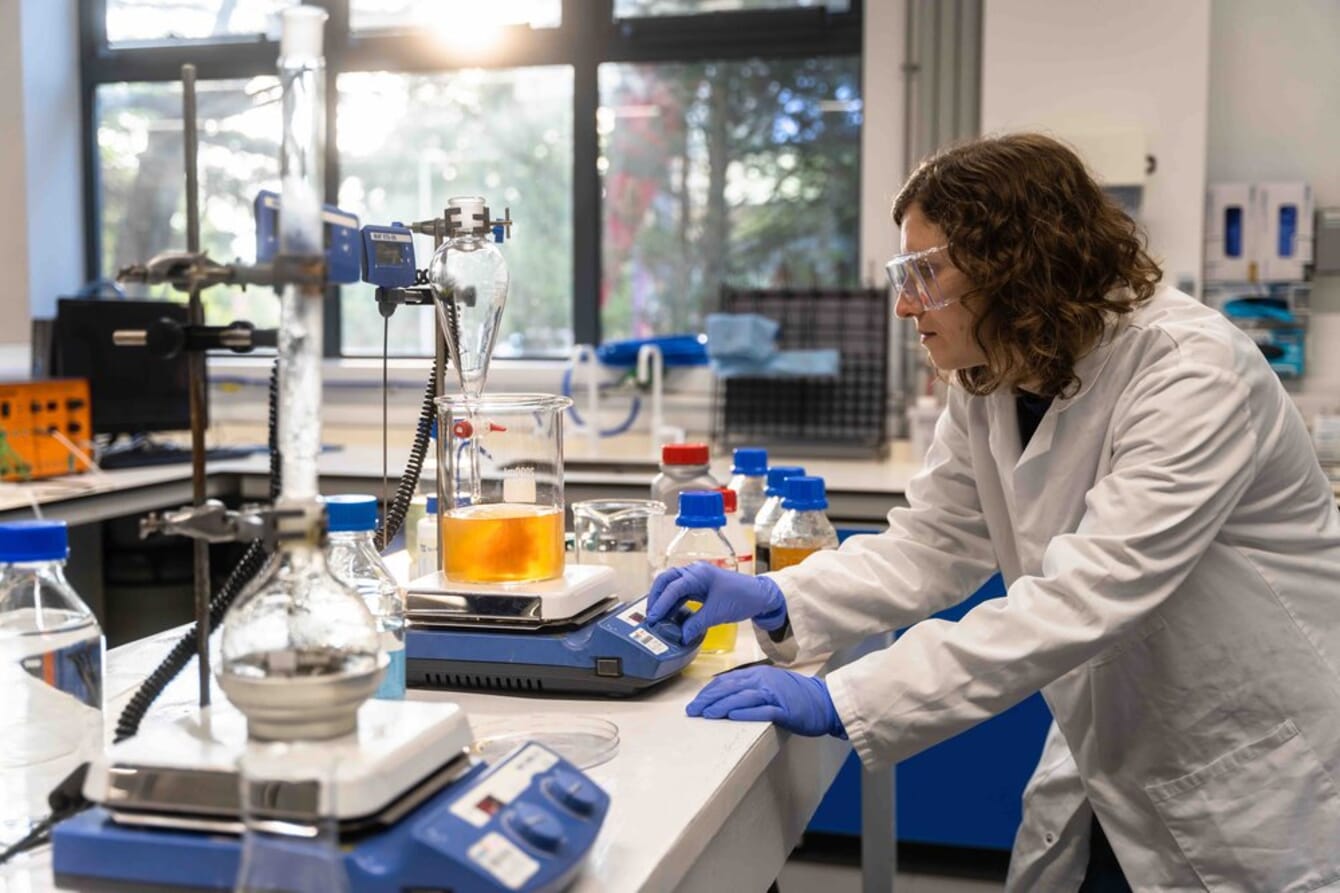
© Kelpi
Kelpi’s seed round was led by Science Creates Ventures and Green Angel Syndicate, with funding from One Planet Capital and follow-on investment from Bristol Private Equity Club (BPEC), together with private angel investors. The round includes £665,000 of grant funding from Innovate UK’s Combined Investor Partnership.
Kelpi will use the funds to conduct manufacturing pilots for their proprietary coatings for paper and card. In the last 2.5 years the company has developed high-performance materials from seaweed, with a uniquely strong water barrier, as well as oxygen barrier, grease and acid resistance. The company is already working with global leaders in food & drink and cosmetics, tuning the exact properties of the coatings to meet the needs of specific clients. In many cases, Kelpi materials can match or even exceed the performance of fossil fuel plastic, but in a material that is renewably sourced, marine-safe, compostable and enables the packaging to be recycled after use.
“This landmark investment enables Kelpi to scale up our pioneering work using seaweed to create bioplastic packaging with the barrier properties required by clients,” said Kelpi CEO and co-founder Neil Morris. “Kelpi can now play a key role in eliminating plastic pollution and ending our dependence on fossil fuels to create single-use packaging. We’re delighted to receive this backing from specialist deep science and sustainability investors like Science Creates Ventures and Green Angel Syndicate to allow us to accelerate our pioneering work with major food and drink companies worldwide to prove our materials at scale.”
Seaweed provides a particularly valuable source of carbohydrates for biomaterials. It grows prolifically without need for fertilisers, nor land nor fresh water – offering benefits over alternative plants from which bioplastics can be made. It soaks up carbon as it grows, de-acidifying and re-oxygenating the ocean.
Dr Catherine Fletcher, principal of Science Creates Ventures, said: “Kelpi stood out to us as a strong combination of world-leading scientific innovation with deep entrepreneurial experience. They’re using deep tech to address a highly valuable commercial challenge and we’re excited to be backing the company to scale up its solutions in the vital area of reducing fossil fuel dependence in plastics.”
Only 9 percent of all plastic waste ever produced has been recycled. 12 percent has been incinerated and the remaining 79 percent is dumped in landfills, or is polluting the environment. Right now more than 99 percent of plastics are produced from chemicals derived from oil, natural gas and coal. If current trends were to continue, by 2050 the plastic industry could account for 20 percent of the world’s total oil consumption, according to the United Nations Environment Programme.
Cam Ross, CEO of Green Angel Syndicate, said “Our network of specialist members was impressed with Kelpi’s team and technology, and their pioneering approach to developing biopolymers from renewable feedstocks like seaweed. At scale, the Kelpi approach will play a vital role in reducing fossil fuel dependency, addressing climate change and impacting on plastic pollution.”
As part of the round, Kelpi won grant-funding from the Future Economy Fund through the Combined Investor Partnership programme delivered by SETsquared and funded by Innovate UK.




